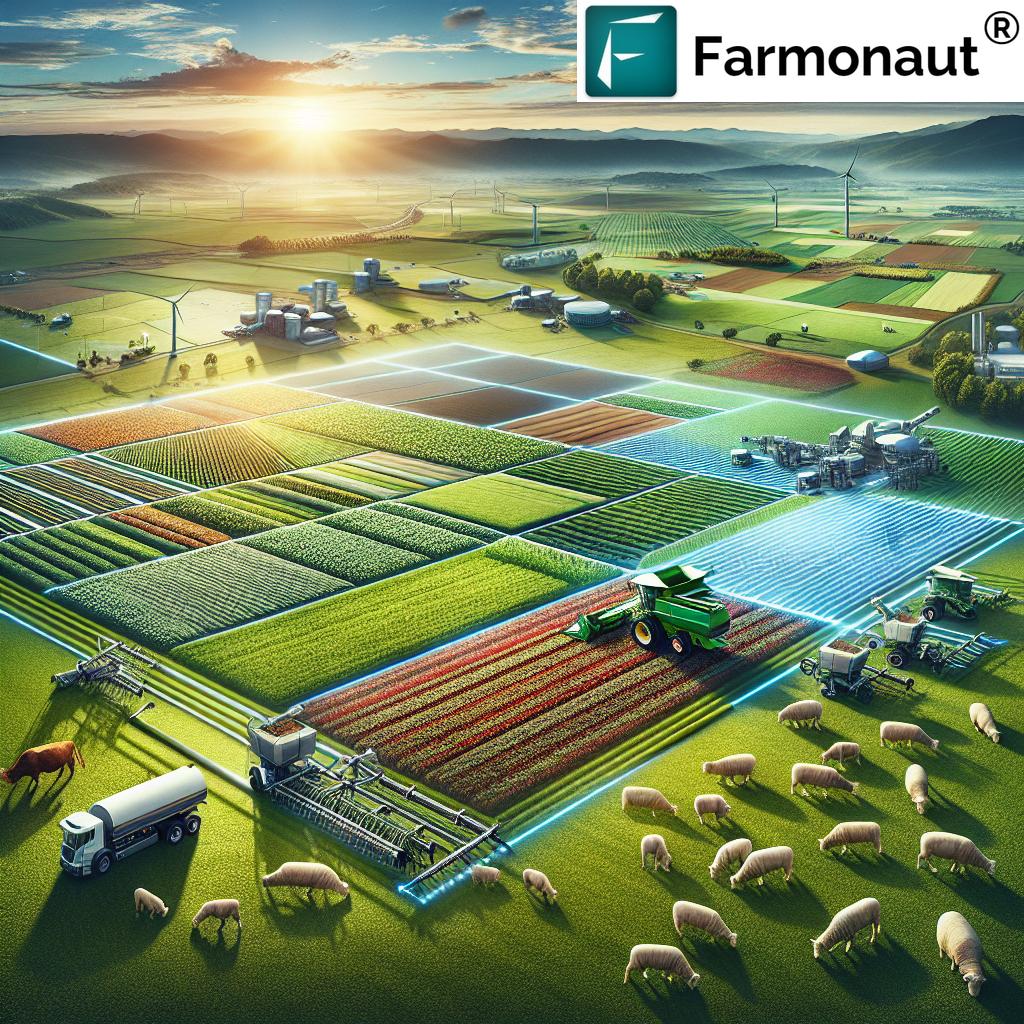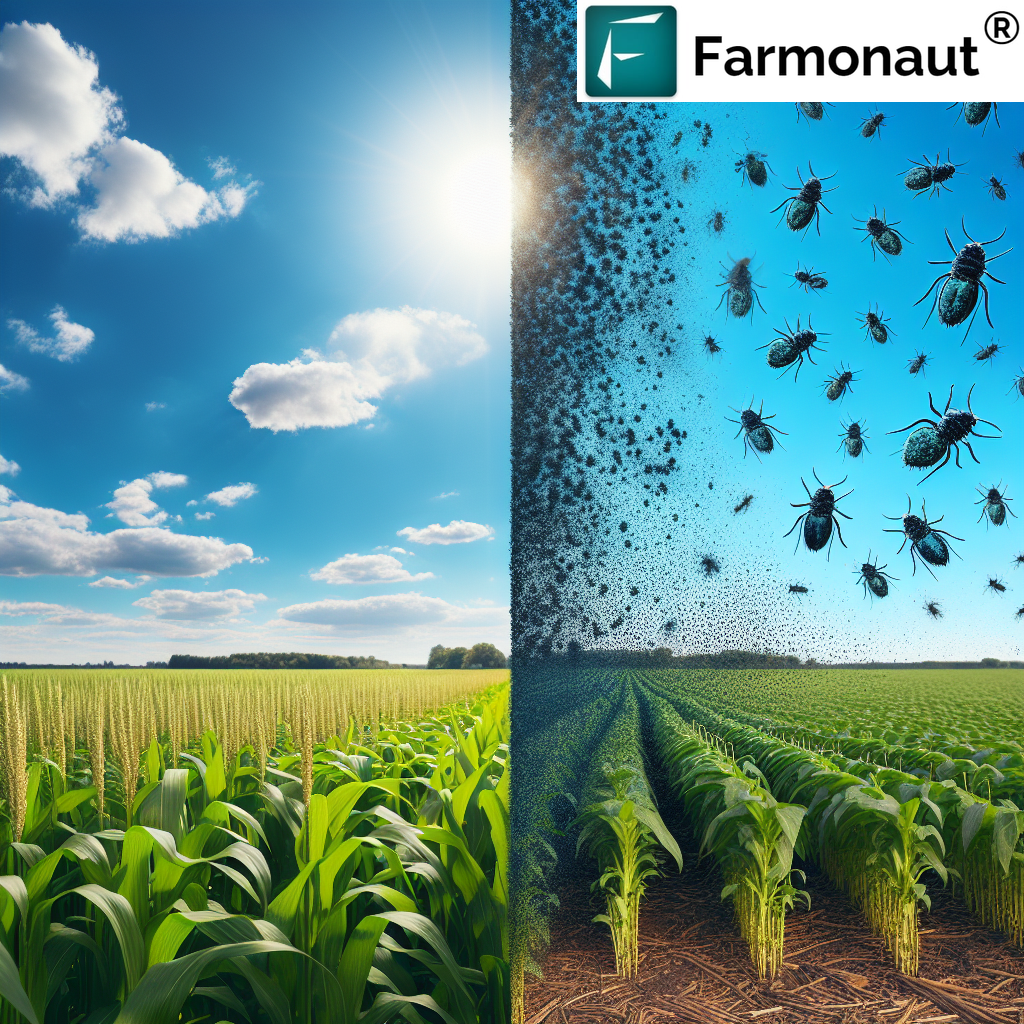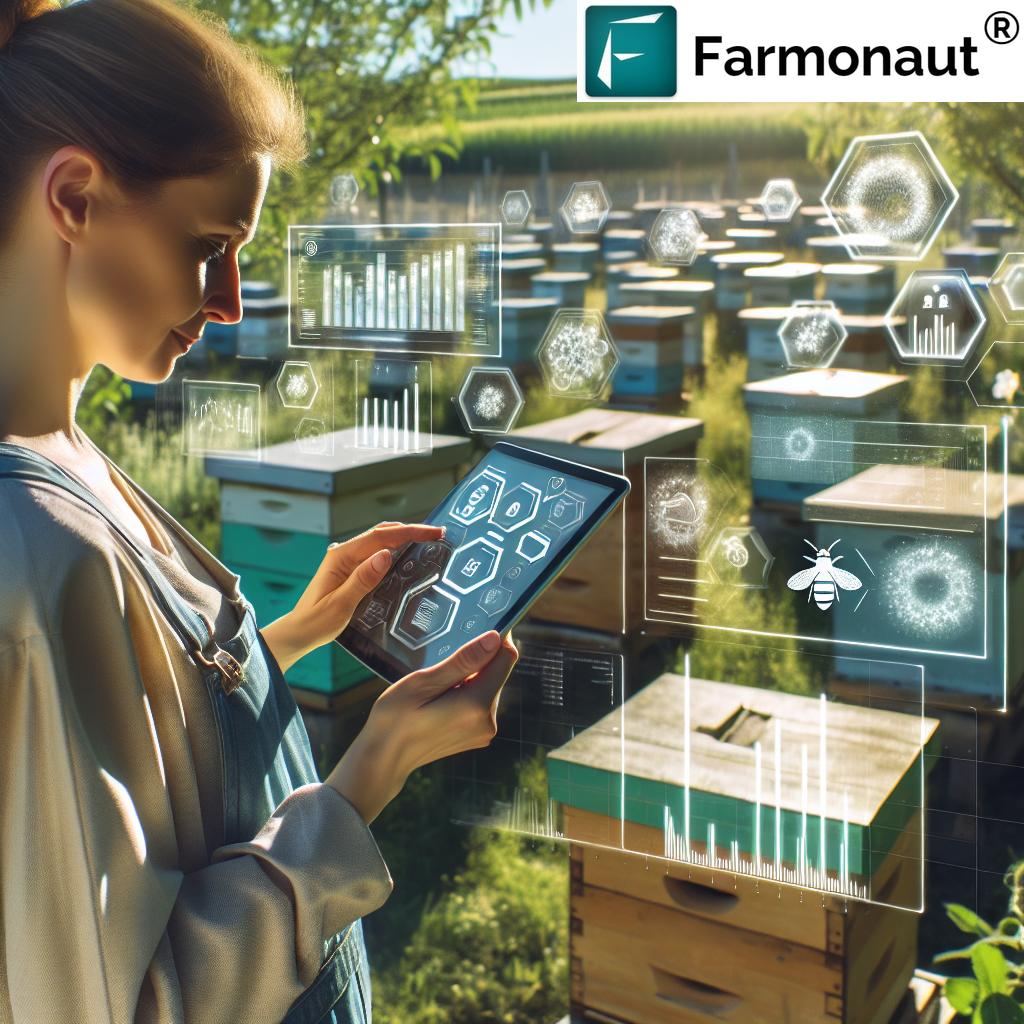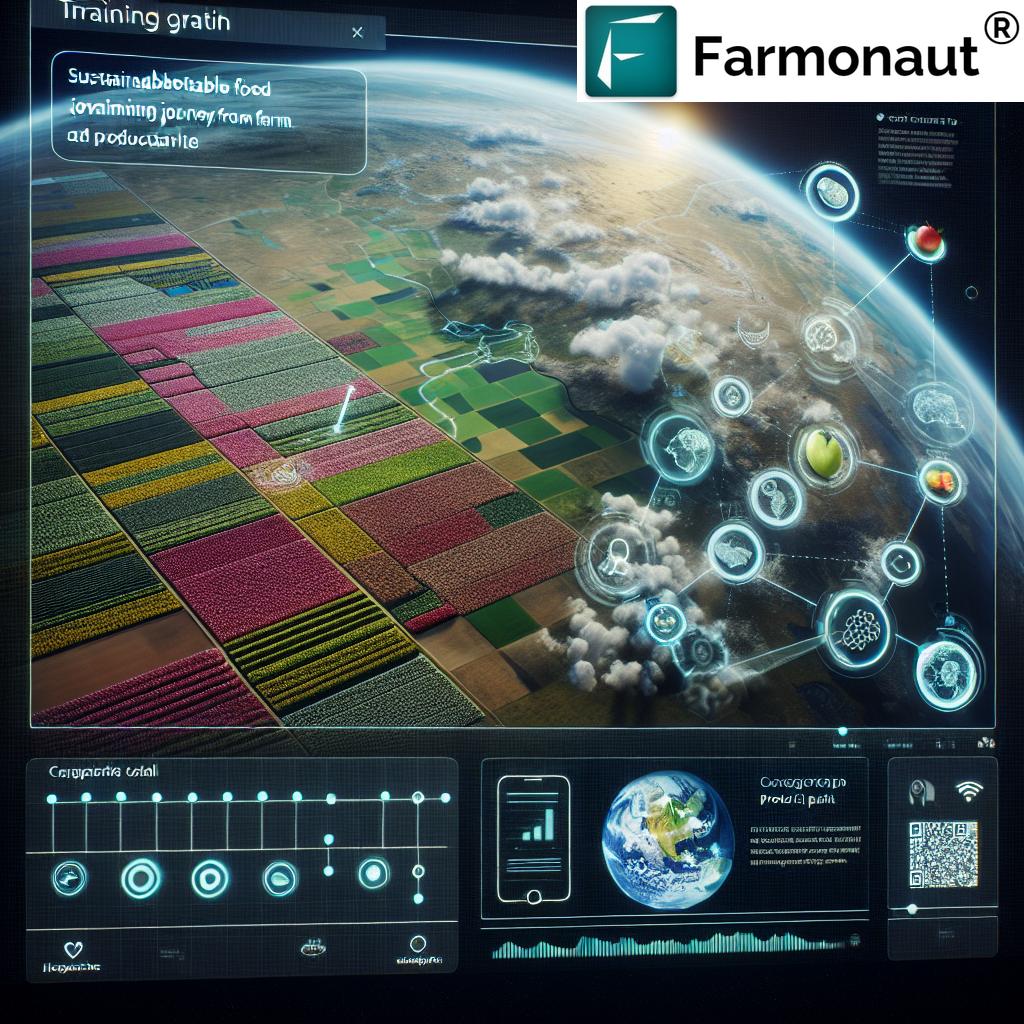Table of Contents
- Introduction: Persimmon Tree for Sale in 2026
- Why Fuyu Persimmon Tree? The Modern Choice for 2025 and Beyond
- Top 5 Fuyu Persimmon Tree Benefits for 2026
- Comparative Table: Fuyu Persimmon Tree Benefits and Market Potential (2025–2026)
- Persimmon Trees and the Expanding Global Market
- Fuyu Persimmon Tree Cultivation: Sustainability & Care Practices
- How Farmonaut Supports Sustainable Agriculture & Orchard Management
- Where to Source Fuyu Persimmon Trees in 2025
- Frequently Asked Questions
- Conclusion: Embracing Fuyu Persimmon Trees for a Resilient Future
“The global persimmon market is projected to exceed $3.5 billion by 2026, with Fuyu persimmons leading growth.”
Persimmon Tree for Sale: Top 5 Fuyu Benefits for 2026
As the global focus on sustainable agriculture and diversified crop production intensifies, persimmon tree cultivation—especially of the renowned Fuyu variety—has emerged as a noteworthy candidate for farmers, horticulturists, and anyone seeking profitable, resilient fruit crops. In this comprehensive guide, we unravel the value and promise of the Fuyu persimmon, detail top five benefits that make it a leading choice for 2026, and reveal how advances in technology, especially through platforms like Farmonaut, are revolutionizing sustainable cultivation, market potential, and land management.
Why Fuyu Persimmon Tree? The Modern Choice for 2025 and Beyond
Among the various species and cultivars of the persimmon tree, the Fuyu persimmon tree stands out for its sweet, seedless, non-astringent fruit and exceptional adaptability to changing environmental and market demands. “Fuyu”—a variety of Diospyros kaki (Japanese persimmon)—is prized in both commercial agriculture and home gardens for being easy to grow, disease-resistant, and suitable for fresh consumption even when firm.
As global consumer demand for healthier and more diverse fruit products continues to rise in 2025 and beyond, cultivating Fuyu persimmon trees provides a compelling opportunity for those seeking reliable returns and ecological resilience. These trees offer significant advantages in sustainable agriculture, from soil health improvement to reduced reliance on chemicals, making them ideal for modern agricultural practices.
Top 5 Fuyu Persimmon Tree Benefits for 2026
To fully understand why the Fuyu persimmon tree is rapidly gaining traction, let’s delve into its five most significant benefits. These advantages not only reinforce its role in contemporary agriculture but also spotlight the long-term opportunities for growers, farmers, and agricultural investors worldwide.
“Fuyu persimmon trees can yield over 25 kg of fruit annually, supporting sustainable farming and local economies.”
-
High and Consistent Yield
- Average annual yield exceeds 25 kg of fruit per mature tree—higher than most fruit trees in the same agro-climatic zones.
- Fuyu trees have a prolonged harvest period (late autumn to early winter), supplying markets for extended durations.
- Early-bearing: Most grafted saplings start producing quality fruit within 2–3 years of planting, versus 5–7 years for many other trees.
-
Exceptional Disease Resistance & Low Pesticide Needs
- Fuyu persimmon trees are celebrated for their natural resistance to many pests and diseases.
- Incidence of soil and air-borne fungal infections (like leaf spot or root rot) is significantly lower in well-maintained Fuyu orchards.
- This benefit drastically reduces chemical treatments and supports organic farming methods, making them a sustainable crop choice for 2025.
-
Low Water Requirement and Robust Drought Tolerance
- Once established, Fuyu persimmons require 30% less water than typical fruit trees like apple or pear under similar conditions.
- This resilience is invaluable in regions facing irregular rainfall, climate change, or shifting water budgets.
-
Excellent Market Price, Shelf Life, and Consumer Demand
- Consumer demand for non-astringent, seedless, sweet fruit (like Fuyu) is steadily increasing globally, especially in health-conscious and urban markets.
- Fuyu persimmons can be harvested firm (extending shelf life up to 2–3 weeks), easily transported, and sold fresh or as processed products (dried persimmons, jams, juices).
- Market prices for quality Fuyu fruit typically range from $2.50–$4.50 per kilogram wholesale, even higher for organic certified crops.
-
Environmental Impact & Biodiversity Enhancement
- Persimmon tree roots and leaf litter help improve soil structure and support beneficial mycorrhizal fungi.
- Planting persimmon trees in agroforestry or intercropping systems enhances biodiversity, conserves resources, and provides critical habitat for local fauna and pollinators—aligning with global sustainability targets for 2026.
Fuyu Persimmon Tree Benefits and Market Potential (2025–2026): Comparative Table
| Benefit | Description | Estimated Impact/Value | Sustainability Score (1–5) | Economic Potential (USD/tree) |
|---|---|---|---|---|
| High Yield | Consistent production of firm, sweet, seedless fruit; minimal alternate bearing issues | 25–30 kg fruit/tree/year | 5 | $75–$120 |
| Disease Resistance | Natural tolerance to common pests/diseases; supports reduced pesticide regimes | Up to 65% fewer chemical sprays | 5 | $30–$50 (savings/tree) |
| Low Water Requirement | Thrives with less irrigation once established; highly drought resilient | 30% less than typical orchards | 4.5 | $20–$35 (water & labor savings) |
| Market Price & Shelf Life | High demand; extended shelf life increases market access | 2–3 weeks postharvest shelf life | 4.5 | $120–$185 |
| Environmental Impact | Enhances biodiversity; improves soil and ecosystem health | +10% soil organic matter; increases pollinators | 5 | Long-term land value boost |
Persimmon Trees and the Expanding Global Market
Persimmon, especially the Fuyu variety, has become increasingly sought-after in a world where consumers value nutrition, unique flavor, and sustainable stories.
- Rising Demand: Reports indicate Fuyu persimmons are consistently leading the worldwide market surge for persimmon fruit. The global persimmon market is on track to exceed $3.5 billion by 2026.
- Diverse Product Lines: Fuyu persimmons serve as fresh fruit, ingredients in high-value dried snacks, and the base for jams and confections, supporting diverse business models for farmers and agro-entrepreneurs.
- Prolonged Seasonality: The late autumn/winter harvesting period enables farmers to access premium prices outside of the main fruit harvest glut (apple, pear, etc.) in the Northern Hemisphere.
- Global Reach: While originally native to East Asia, Fuyu persimmon trees now thrive across temperate and subtropical zones—including North America, Europe, South America, and parts of Africa and Australia—broadening market access for growers and exporters.
Farmers and horticulturists who source quality persimmon tree for sale—especially the Fuyu variety—can capitalize on this expanding market. Establishing a persimmon orchard integrates directly with sustainable agricultural practices and carbon footprint tracking goals, which are now incentivized in many global jurisdictions as part of climate-smart agriculture initiatives.
Fuyu Persimmon Tree Cultivation: Sustainability & Care Practices
Growing Fuyu persimmon trees is an increasingly straightforward process for both seasoned orchardists and newcomers. Its favorable genetic traits, including a compact root system and ability to withstand a range of soil conditions, make Fuyu uniquely suitable for modern, sustainable horticulture. Here is a practical roadmap for success:
Site and Soil Preparation
- Soil Requirements: Best grown in deep, well-drained loamy soil (pH 6.0–7.5), but can tolerate slightly acidic or alkaline soils better than most fruit trees.
- Sunlight: Ensure full sun exposure for optimal yield and fruit quality.
- Drainage: Avoid planting in water-logged sites; consider gentle slopes for natural runoff—especially critical in regions with higher rainfall.
Irrigation and Drought Management
- Young saplings need regular, deep watering, particularly in the first three years to establish roots.
- After establishment, trees are highly drought-resilient—reduce irrigation by up to 30% compared to apples or pears.
Pruning and Canopy Management
- Focus on open-center or modified central leader shapes for the best air circulation (reducing disease) and easy harvesting.
- Regular but moderate pruning is required to remove weak/damaged wood and to encourage new fruit-bearing shoots.
- Minimal pruning is needed once the tree matures, reducing long-term labor requirements.
Fertilization and Organic Care
- Fuyu persimmon trees require relatively low fertilization compared to other fruit crops, especially if grown in well-managed, organic soil with good organic matter.
- A balanced NPK (nitrogen, phosphorus, potassium) regime is sufficient; compost and mulch are recommended for ongoing soil health.
- Avoid excessive nitrogen late in the season, as it can delay fruit hardening and reduce storability.
Pest & Disease Management
- Fuyu persimmon’s resilience means reduced need for synthetic pesticides, especially when basic orchard hygiene is observed.
- Integrated Pest Management (IPM) strategies—like regular visual inspections and removing fruit mummies—further ensure success.
- Learn how advancements in product traceability and orchard monitoring can help you meet certifiable organic and eco-friendly farming standards, increasing consumer trust and export value.
Harvest and Post-Harvest Handling
- Firm fruit are hand-harvested before the first frost; they can be marketed fresh, dried, or processed.
- Fuyu persimmons’ non-astringent quality means they are ready to eat out of hand without the waiting time required for astringent types to soften.
- Properly handled and stored, these fruits offer an impressive shelf life—and the opportunity for delayed or bulk shipment to distant markets.
How Farmonaut Supports Sustainable Agriculture & Orchard Management
Embracing advanced technology is essential to maximizing the productivity, sustainability, and economic potential of Fuyu persimmon orchards. As a leading provider of satellite-based agricultural solutions, Farmonaut integrates AI-driven monitoring, blockchain-based traceability, and environmental analysis tools—empowering farmers and managers worldwide.
- With multispectral satellite crop health monitoring (large scale farm management), users can visualize the vegetation health of their orchards, catch early symptoms of decline, and optimize input application—thus reducing cost and environmental impact.
- Our blockchain technology (traceability solutions) ensures that persimmon products can be verified and authenticated throughout the supply chain, promoting transparency and building consumer trust.
- Environmental impact monitoring through carbon footprinting tools supports compliance and marketing efforts for growers committed to eco-friendly agriculture.
-
Use
 Farmonaut Web App for on-the-go management of your orchard and monitoring critical parameters remotely!
Farmonaut Web App for on-the-go management of your orchard and monitoring critical parameters remotely!
Check out the Farmonaut API developer docs for seamless integration of satellite and weather intelligence into your own farm management platforms. -


By integrating Farmonaut’s tools, Fuyu persimmon growers can confidently move toward organic certification, enhanced yield prediction, and full environmental compliance—vital factors as regulators, marketers, and consumers expect ecological stewardship in 2025 and beyond.
Where to Source Fuyu Persimmon Trees in 2025
For those seeking to establish or expand their persimmon orchard, sourcing the right planting material is key to long-term success:
- Purchase Grafted Saplings from Certified Nurseries: Only buy Fuyu persimmon tree for sale from reputable nurseries, ensuring trees are grafted onto strong rootstock and certified disease-free.
- Bare-root vs. Container-grown Trees: Both forms are available—bare-root plants are shipped during dormancy (winter/early spring), while container-grown stock offers more flexible planting times.
- Digital & Online Platforms: The digital transformation of agricultural markets means many certified nurseries now offer online ordering with traceability and planting guidance, making it easier for modern farmers to access quality stock.
Check local/grower cooperative recommendations for varieties best suited to your climate and aims—while Fuyu is adaptable, microclimate consideration enhances yield and resilience. Remember: Inquire about post-sales support, genuine varietal guarantee, and pest-resistance screening—all vital in 2025’s dynamic agri-horticultural landscape.
For further technical support on orchard design, canopy mapping, and ongoing satellite monitoring, explore Farmonaut’s crop plantation and forest advisory solutions. Leverage cutting-edge technology for land selection, plantation layout, and long-term orchard sustainability.
Frequently Asked Questions: Persimmon Tree for Sale, Fuyu Benefits, and 2026 Market Trends
What is the Fuyu persimmon tree and why is it considered valuable for agriculture in 2025–2026?
The Fuyu persimmon tree is a non-astringent, seedless variety of Diospyros kaki (Japanese persimmon) known for its sweet, firm fruit and adaptability to diverse climates. Its resilience to pests/diseases, early yield, and suitability for sustainable cultivation make it highly valuable for modern agriculture as global consumer demand intensifies.
How does the Fuyu persimmon tree compare to other fruit trees in terms of water and chemical usage?
Fuyu persimmon trees require about 30% less irrigation than apples or pears, and their natural disease resistance allows a 65% reduction in chemical sprays. This supports eco-friendly and low-input agriculture, helping farmers lower costs and meet regulatory/environmental targets.
Where can I find Fuyu persimmon trees for sale that are suitable for my region?
Certified nurseries and licensed suppliers in your local area or through reputable online platforms offer Fuyu persimmon trees for sale as both bare-root and potted saplings. Always ensure varietal authenticity, disease-free stock, and appropriate rootstock selection for your climate.
What market potential does Fuyu persimmon have?
The Fuyu persimmon’s firm, sweet fruit is increasingly sought after in fresh and processed markets worldwide. Market prices for quality fruit are typically $2.50–$4.50 per kilogram wholesale in 2026, with potential for higher prices for organic or specialty products. Market expansion is projected to exceed $3.5 billion globally by 2026.
How can satellite technology, like Farmonaut, help Fuyu persimmon growers?
Satellite-based monitoring helps track crop health, water needs, and pest/disease risks in real-time. Farmonaut provides AI-driven recommendations, environmental impact analysis, and traceability—enabling growers to improve productivity, market certification, and sustainability.
Conclusion: Embracing Fuyu Persimmon Trees for a Resilient Agricultural Future
The trajectory of global agri-horticulture in 2026 clearly favors adaptive, sustainable, and economically robust crops. The Fuyu persimmon tree—with its high yield, disease resilience, minimal input demand, and expanding market value—epitomizes the kind of crop modern farmers and horticulturists should prioritize.
The continued development and adoption of solutions from technology providers like Farmonaut further empower growers to maximize profitability, traceability, and sustainability—key drivers for long-term success in a climate and market-conscious era.
Whether you are a large commercial operation, a community cooperative, or a dedicated smallholder, integrating Fuyu persimmon trees into your agricultural portfolio is a future-focused, sustainable, and rewarding choice for 2026 and beyond.
Summary: The Persimmon Tree: A Valuable Addition to Modern Agriculture and Horticulture in 2025—Fuyu persimmon trees, renowned for resilience, high yields, and adaptability, are redefining sustainable agriculture and profitability. Supported by advanced satellite technology and expanding global demand, Fuyu is set to become a cornerstone crop for forward-thinking farmers and horticulturists.









